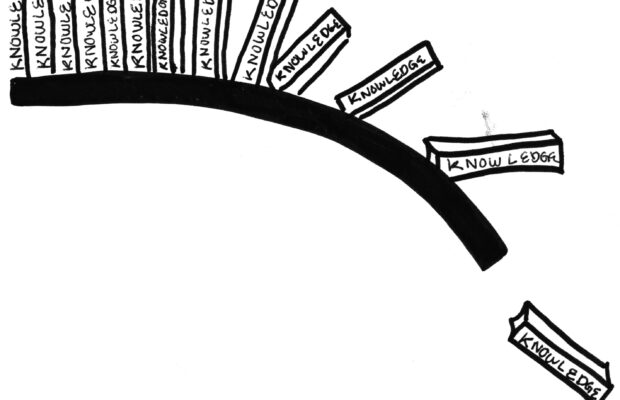Generation Alpha is unwilling to read

When I think back to my childhood, some of my fondest memories involve reading. Whether I remember calm afternoons spent at the Barnes and Noble café or going to “Read to a Dog” events at the library with my mom, I can recall the immense joy I felt over all things reading and writing. Sadly, as I’ve grown up, the time I used to spend reading has become time spent doomscrolling on my phone or watching T.V. Unfortunately, this is not a problem specific to me.
It seems that since the COVID-19 pandemic ravaged our society and classes were no longer held in person, younger children and their ability to read were the most impacted. Personally, this came to my attention while I worked as a camp counselor this summer. I noticed that even 8-year-old kids could not spell simple words like “yellow,” that fewer and fewer of them read frequently and that few genuinely enjoyed reading for pleasure.
Besides the fact that this is concerning for our future generation from an educational standpoint, it is also concerning to me when I think about all they are missing out on. Reading allows one to be practically transported to another reality, while enriching their mind and learning new things. As a kid, I remember spending entire days with my nose buried in a book, engrossed in the unfortunate lives of the Baudelaires, the journeys of Milo and his phantom tollbooth or the wimpy diaries of Greg Heffley.
My question becomes, how do we as a society address this issue? Screens already play a significant role in the lives of our youth, and it is highly unlikely that most parents will suddenly be able to rip the iPads away from the sticky fingers of their children. I think the solution may involve incentivizing reading in order to revive literary joy. Perhaps local libraries could create some sort of summer reading-esque program during the school year, in which kids receive a prize for reading a certain amount of books. Something of this nature could potentially motivate elementary school students to pick up a chapter book and put down their iPad.
I understand the struggle elementary school teachers currently face. There are third grade students who barely know their fifty sight words. It is not fair to place the burden of teaching children how to read entirely onto teachers. I believe that due to the promotion of technology and an influx of, frankly, lazy parenting, parents are failing their children by not adequately introducing them to books and the gift of reading. This must be addressed, or else literacy rates will continue to decline, and practically an entire generation will be left without one of the most valuable resources known to man.



